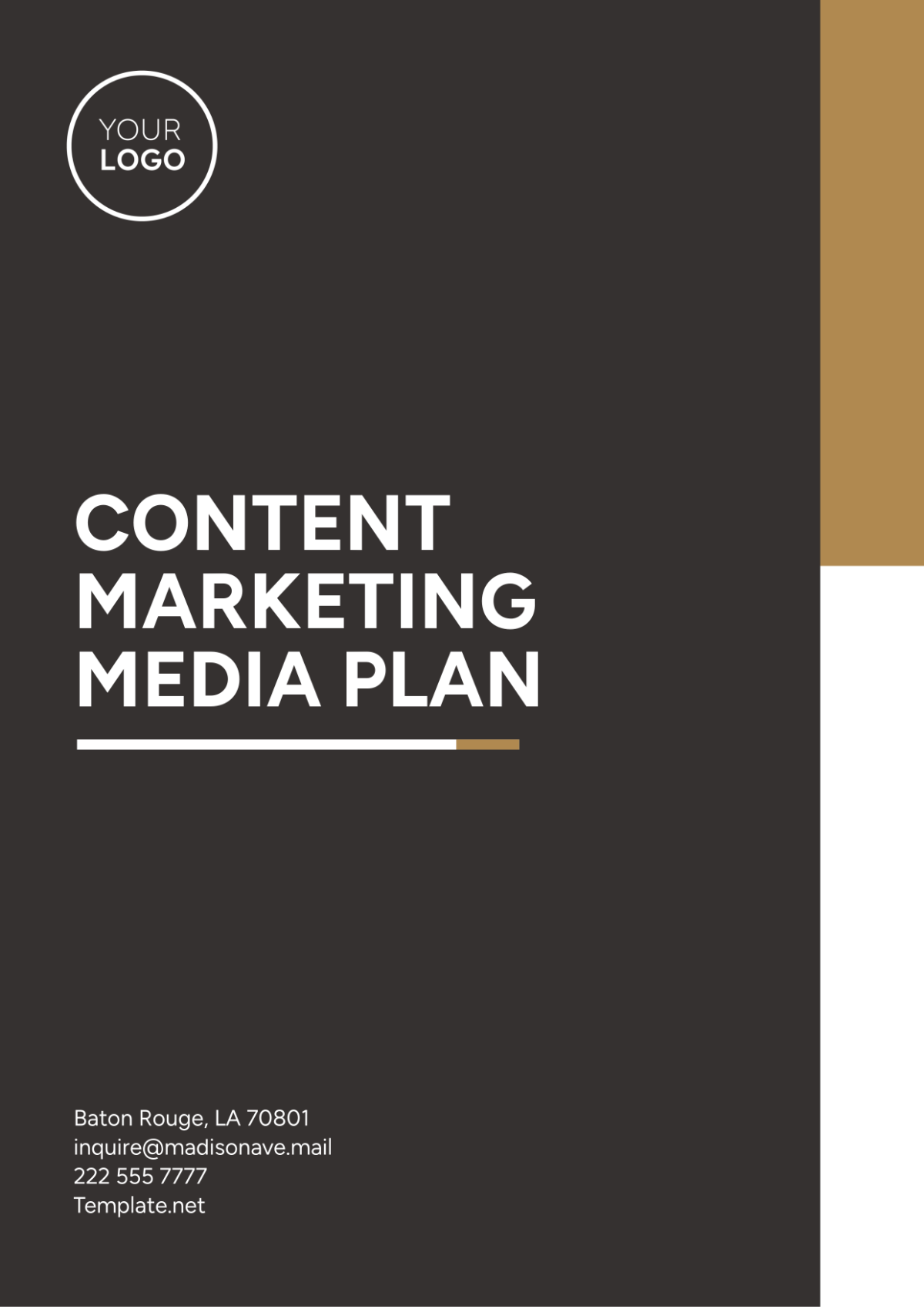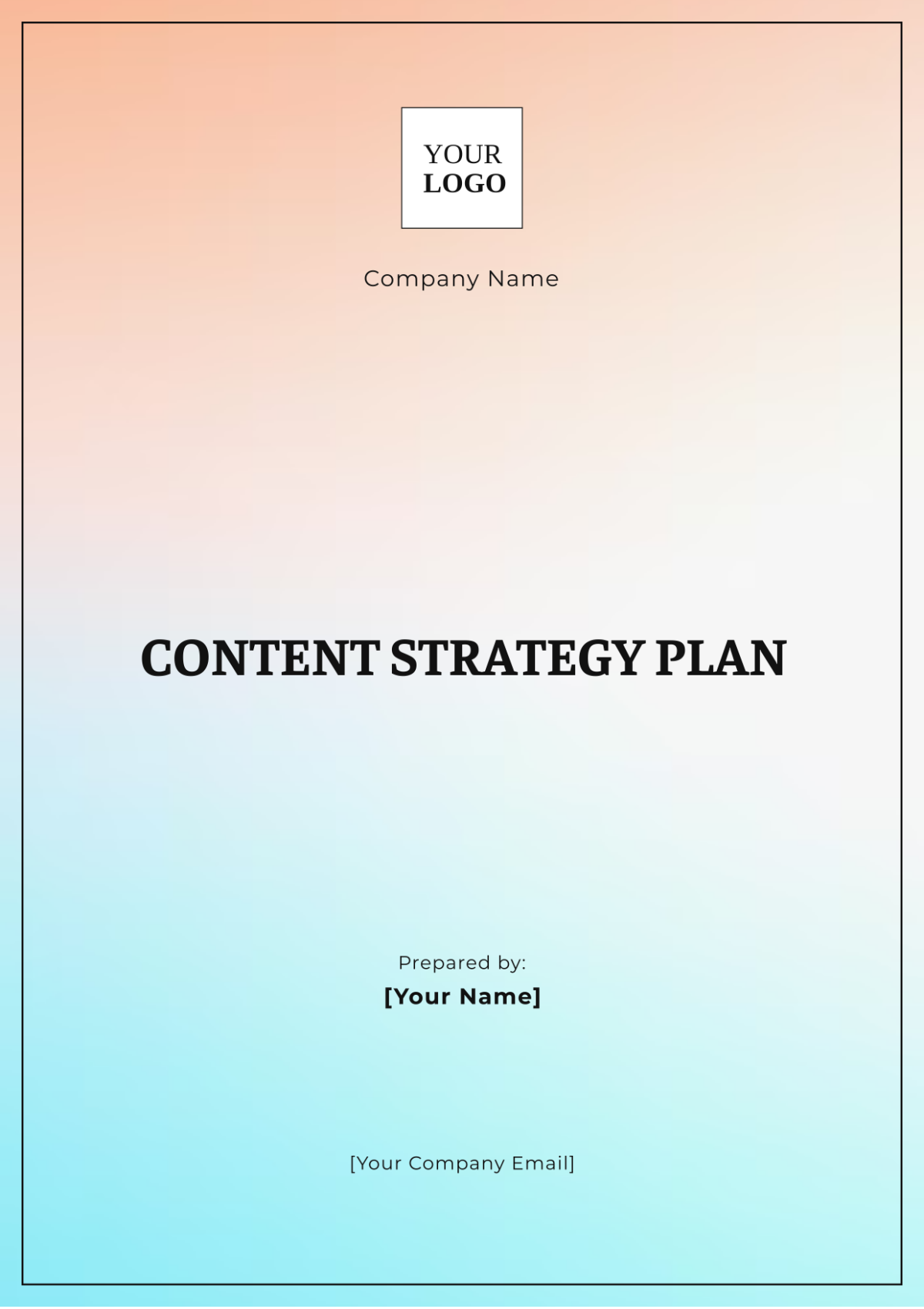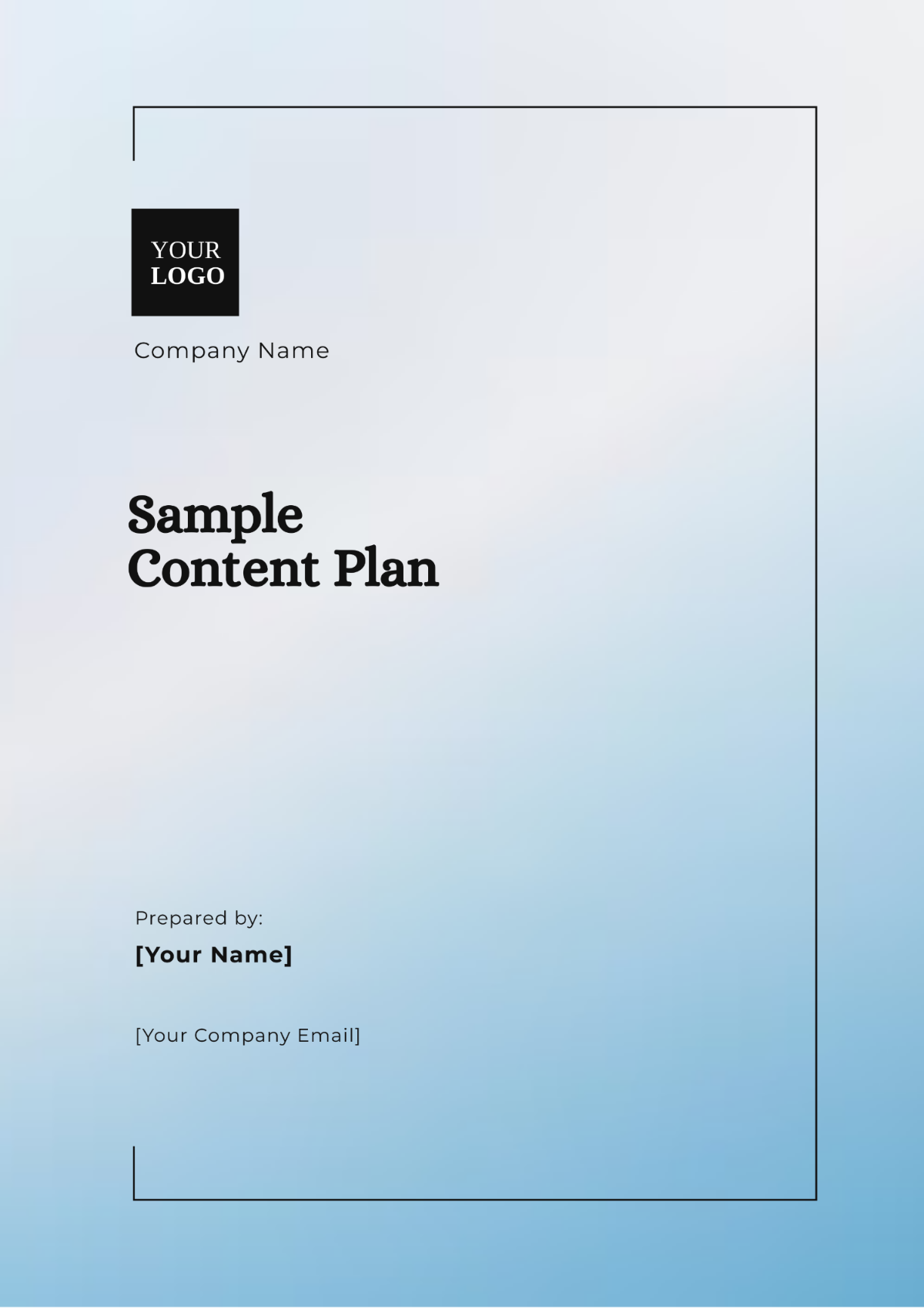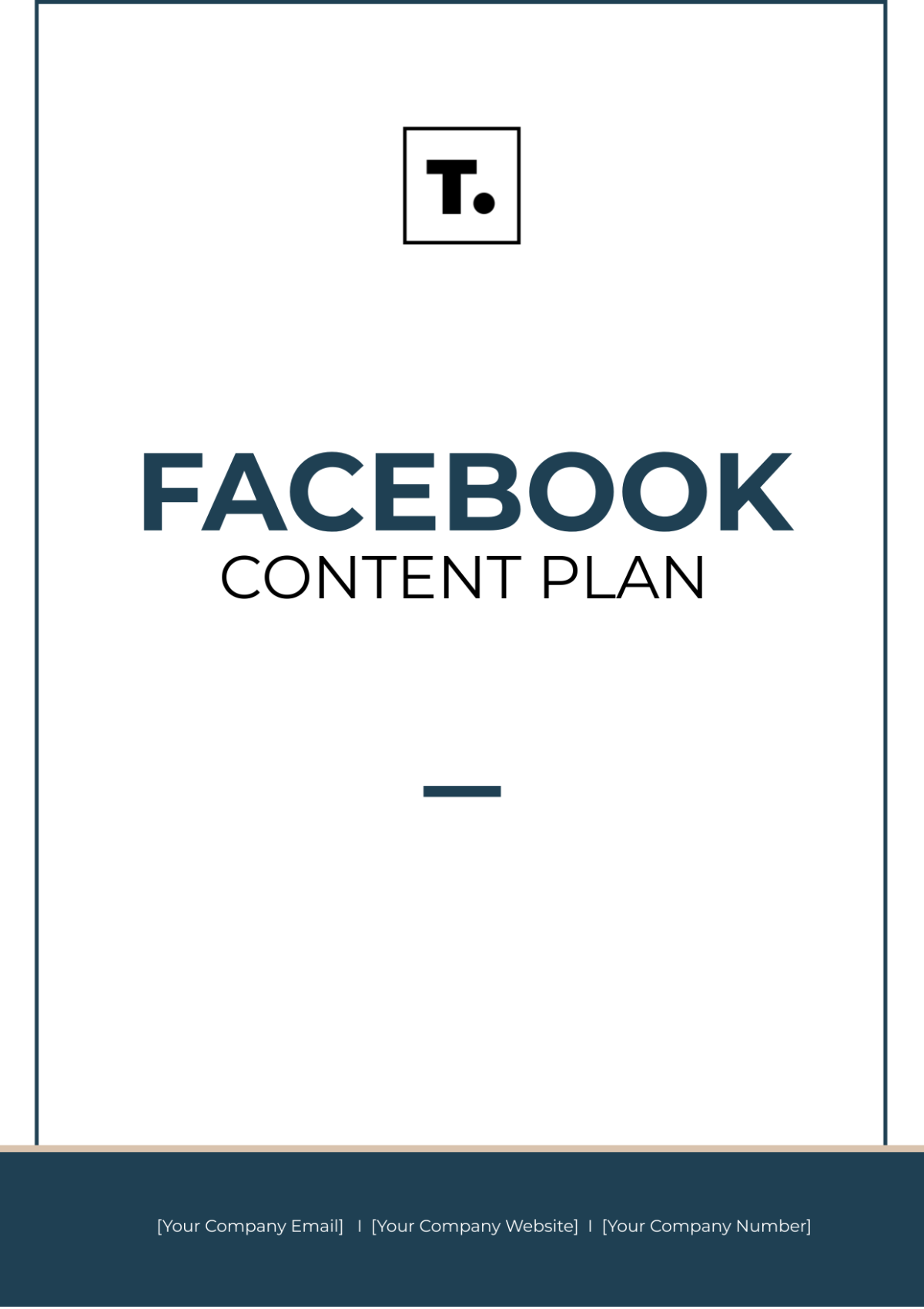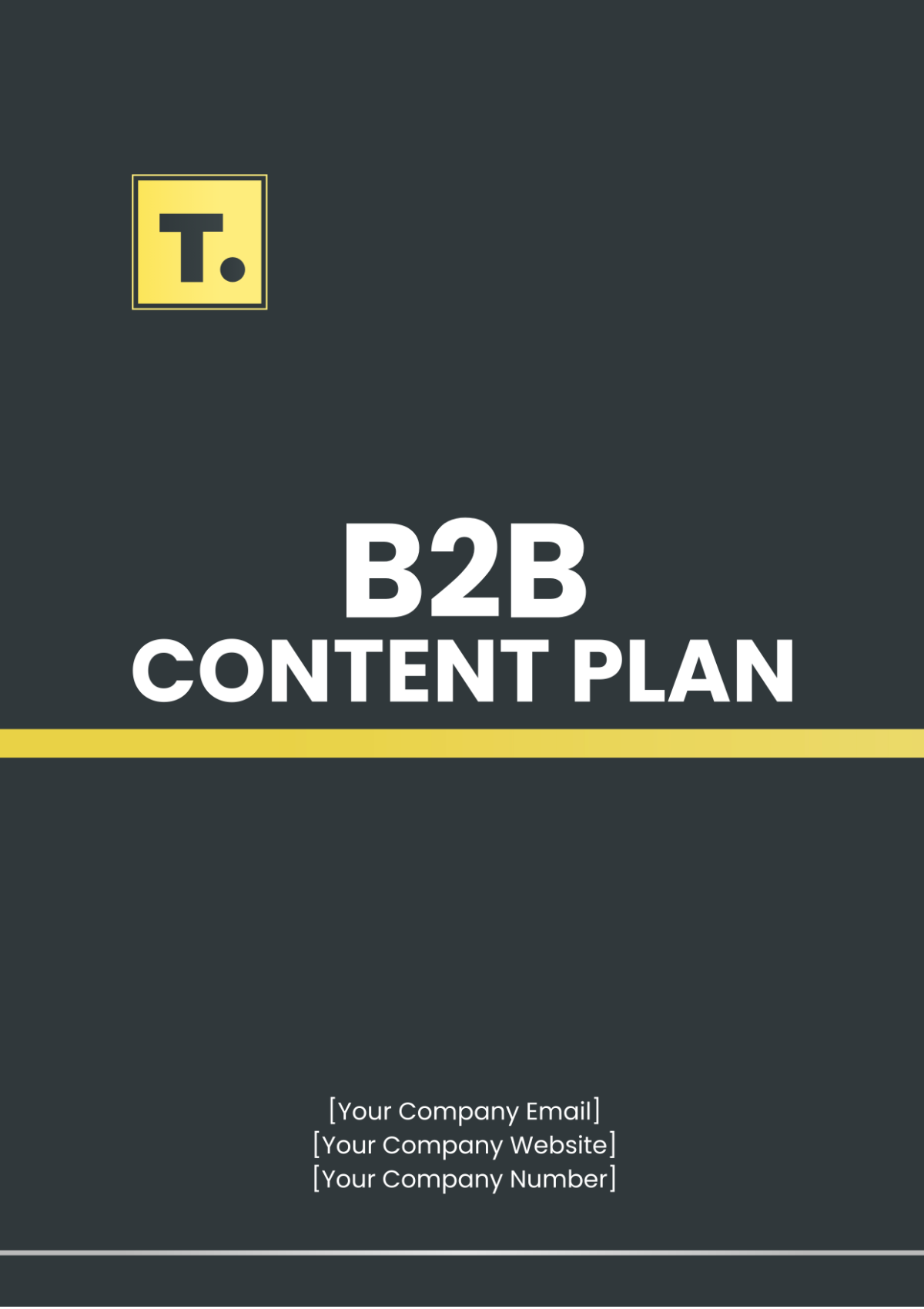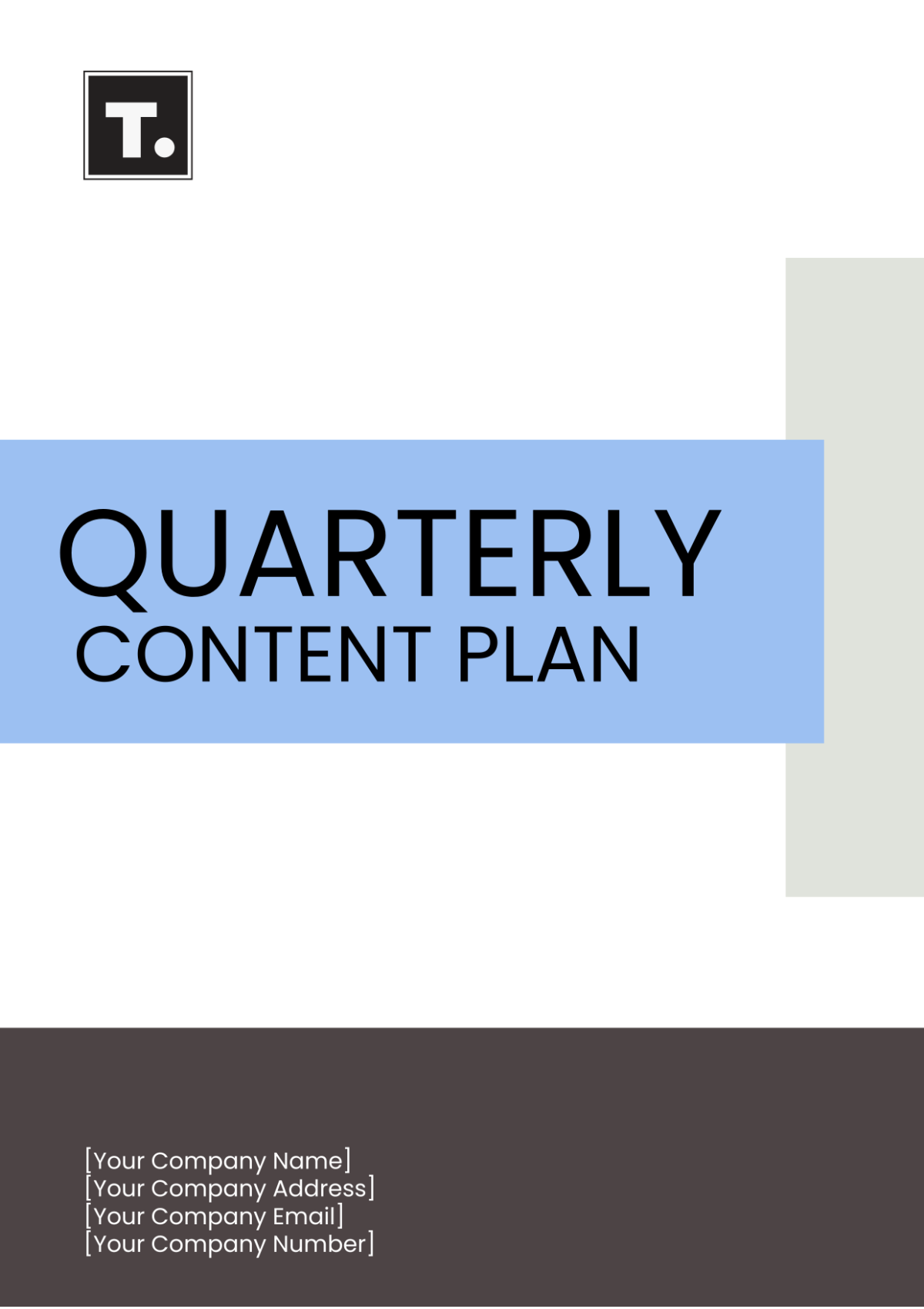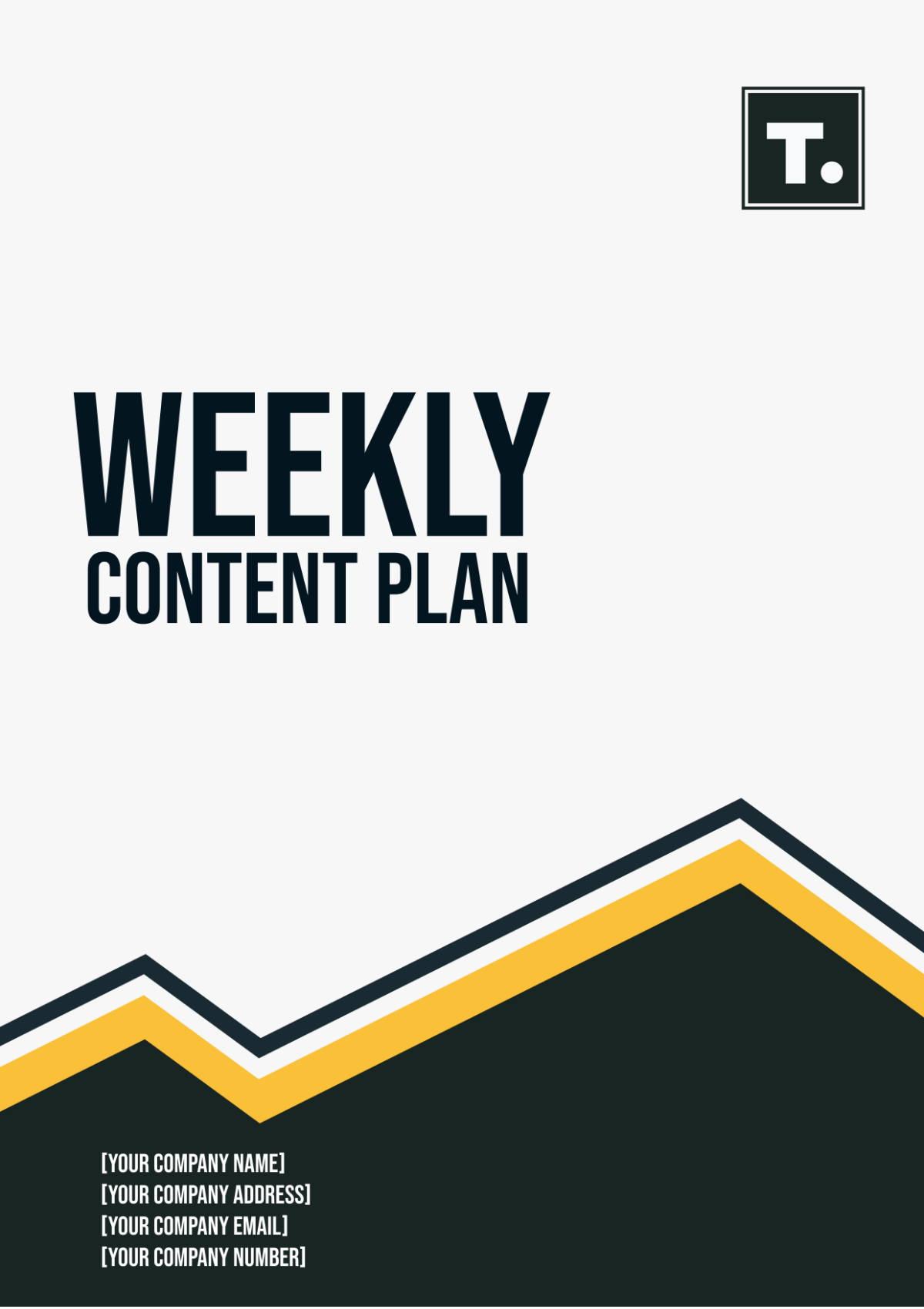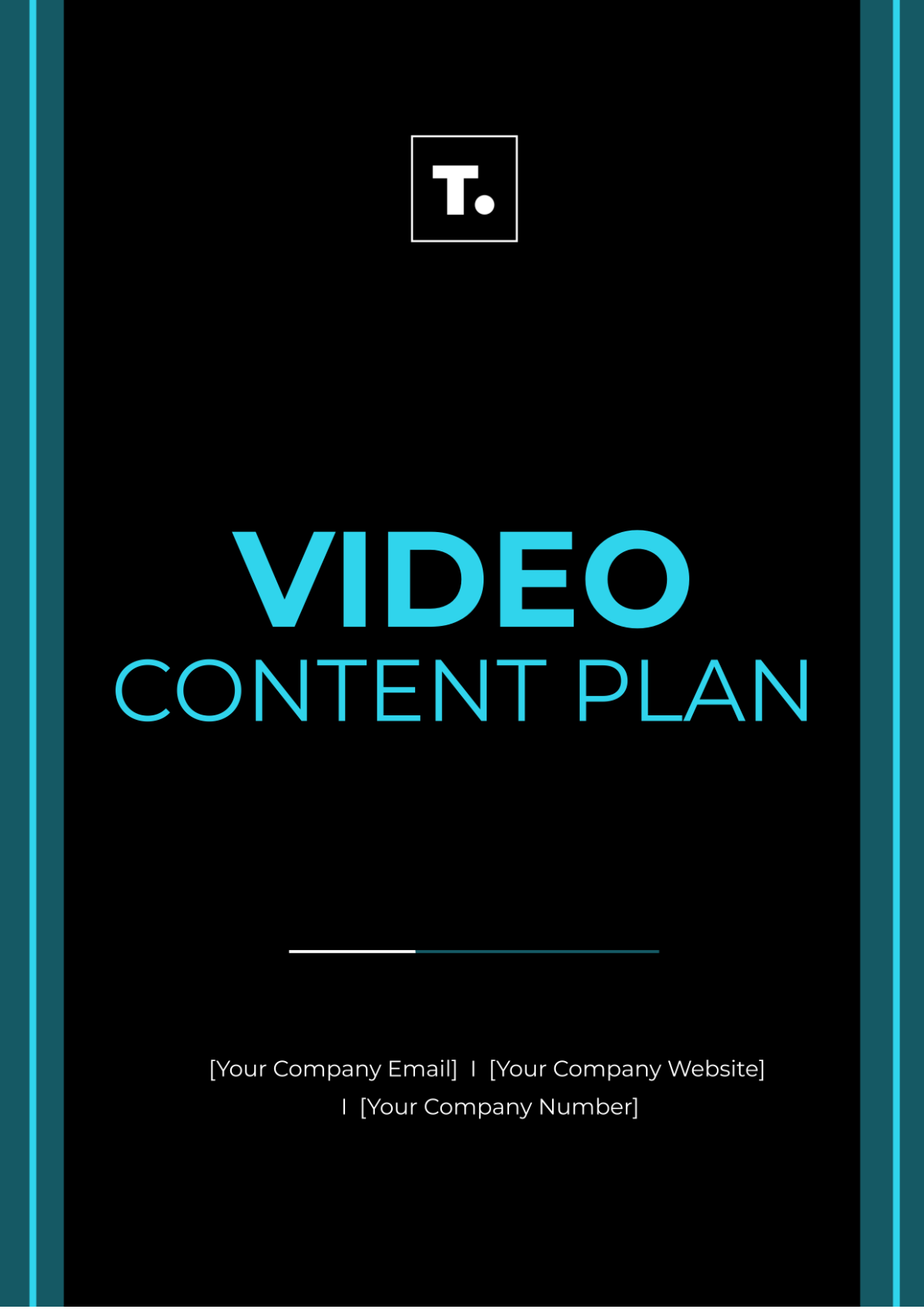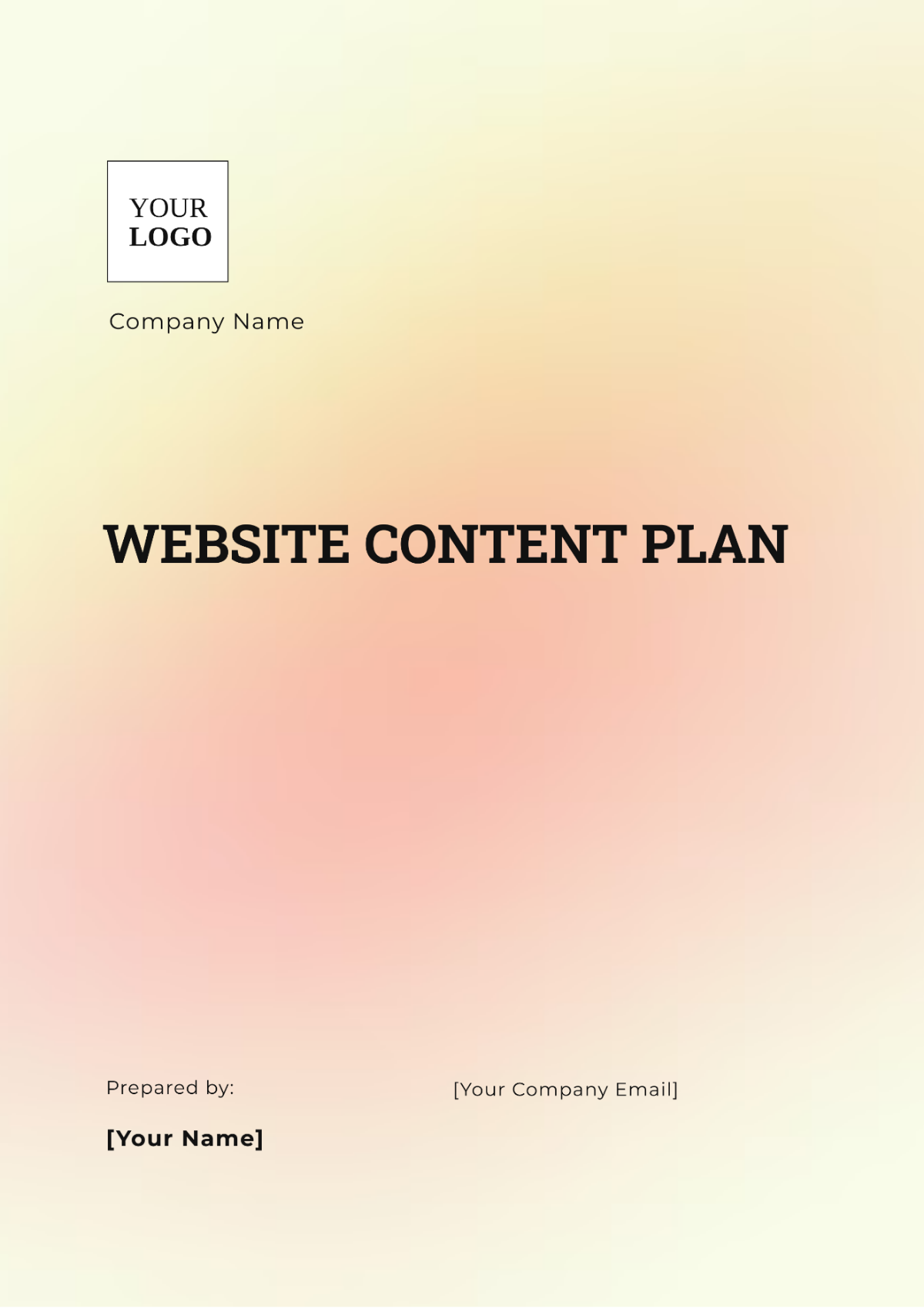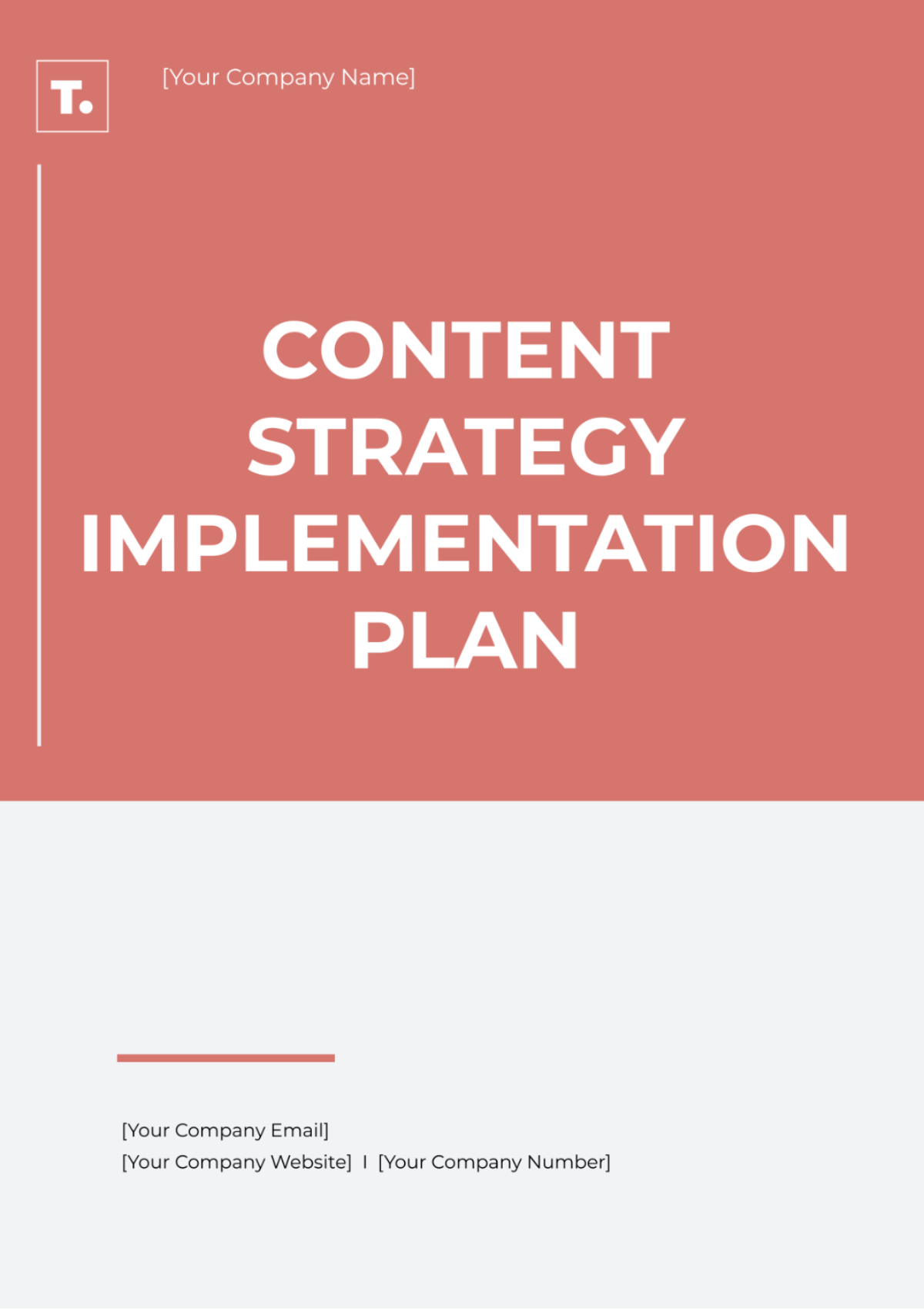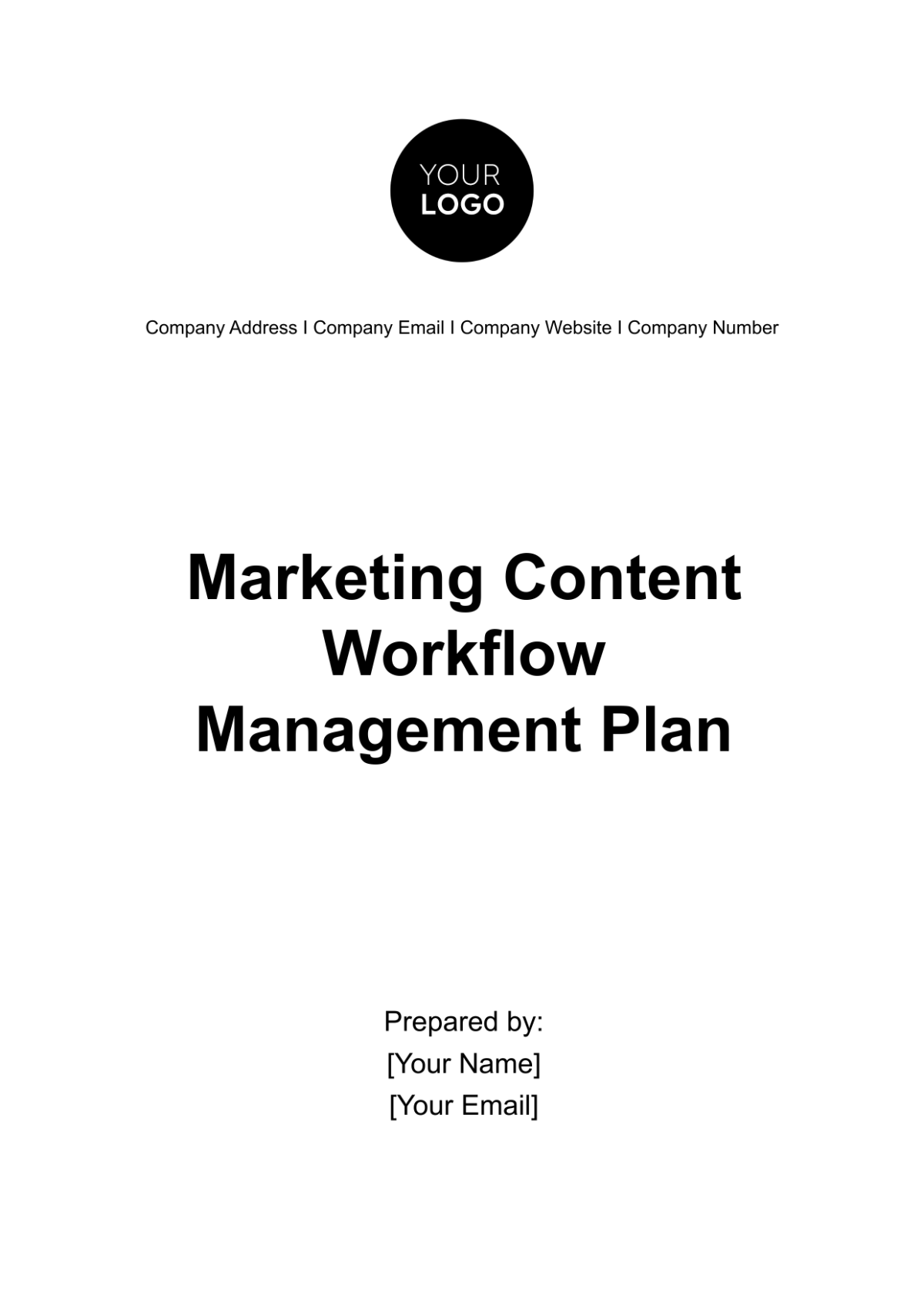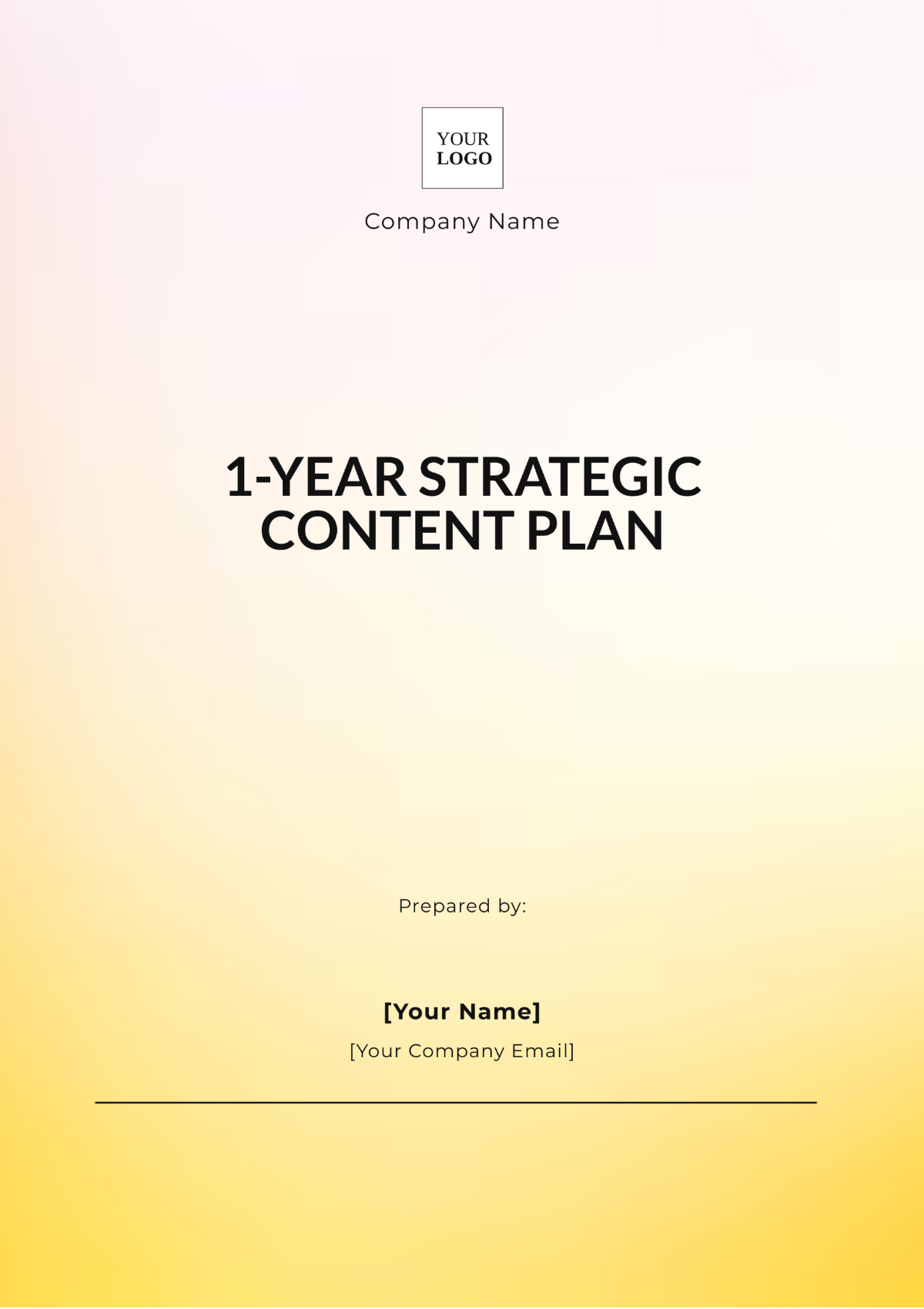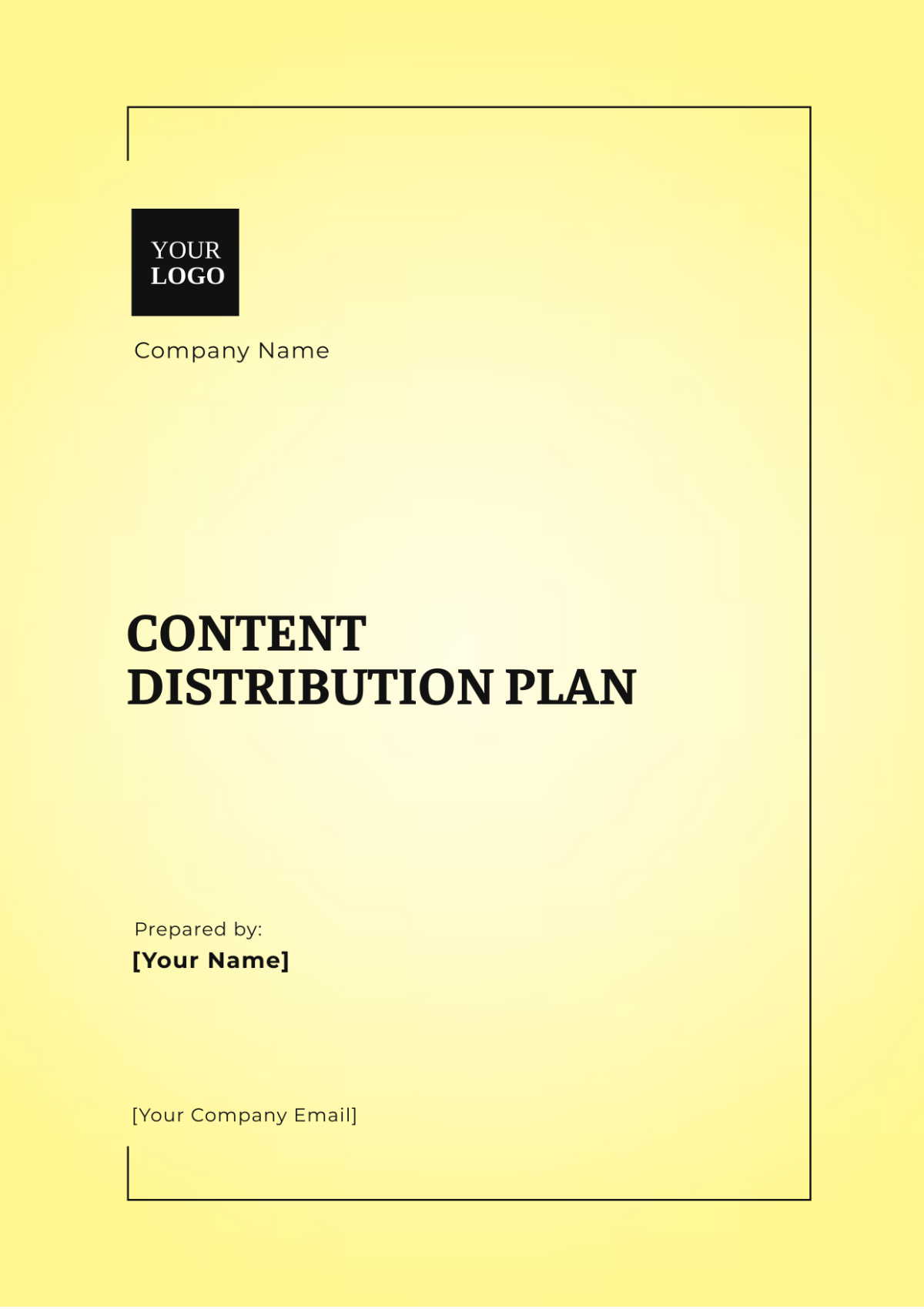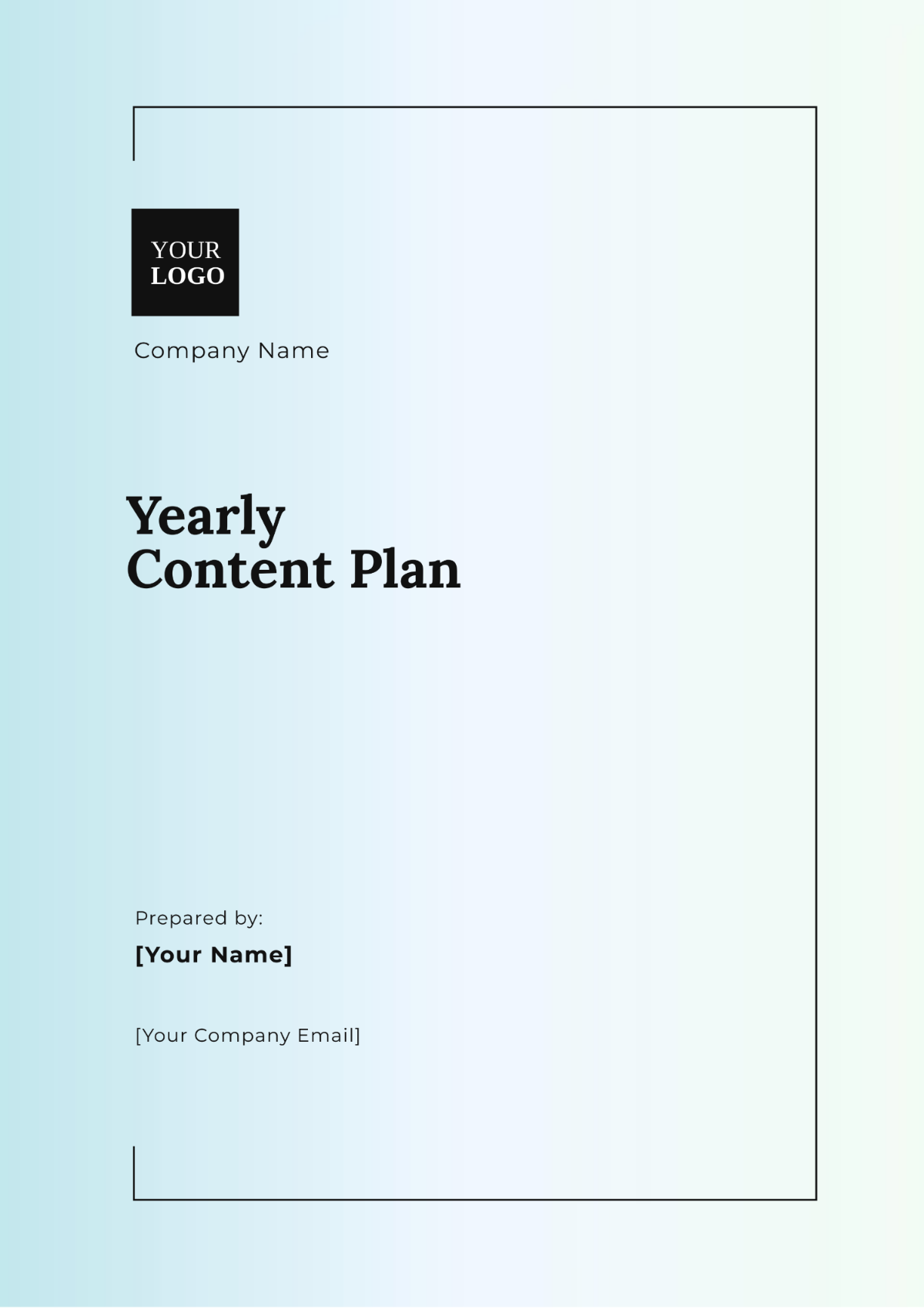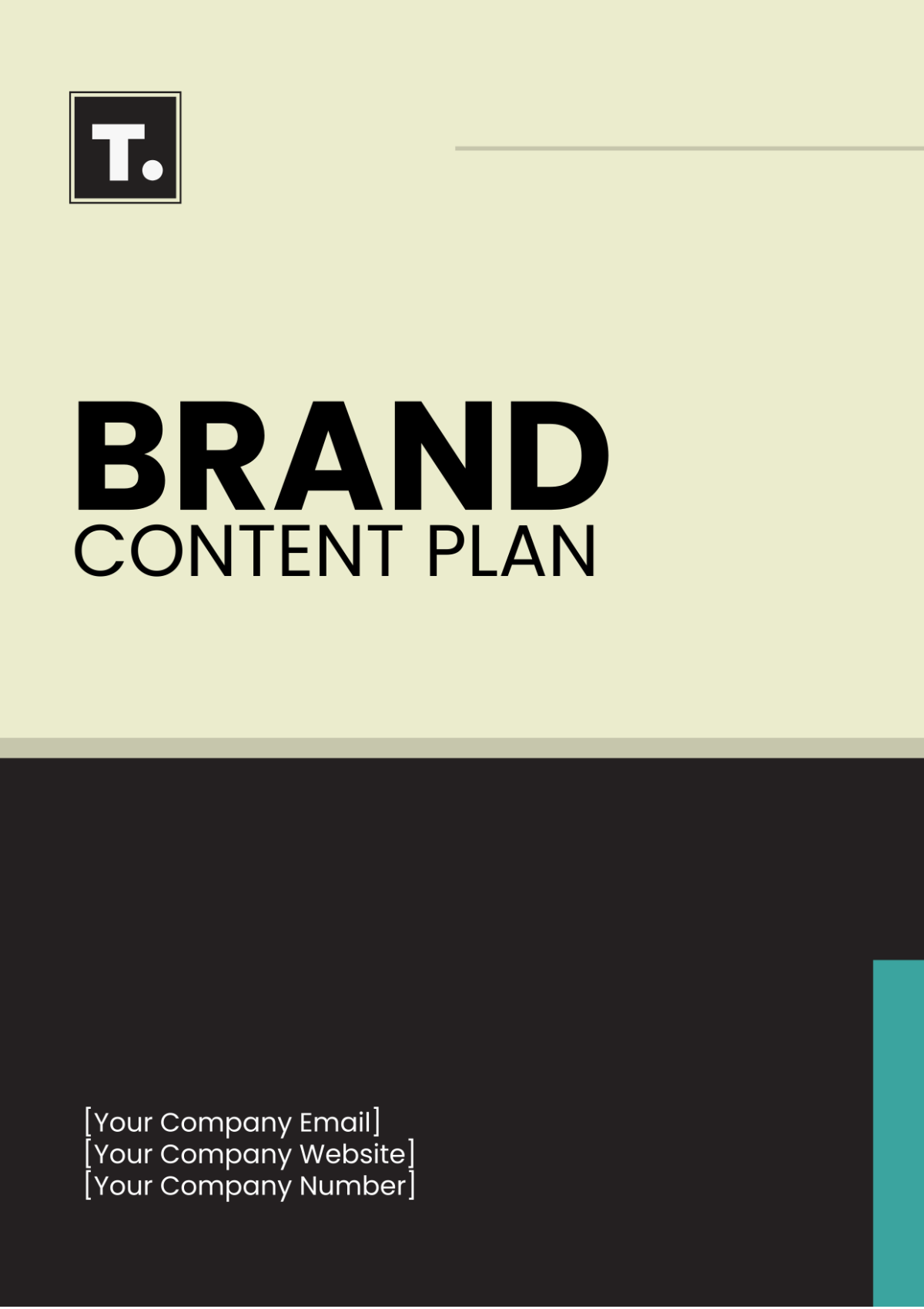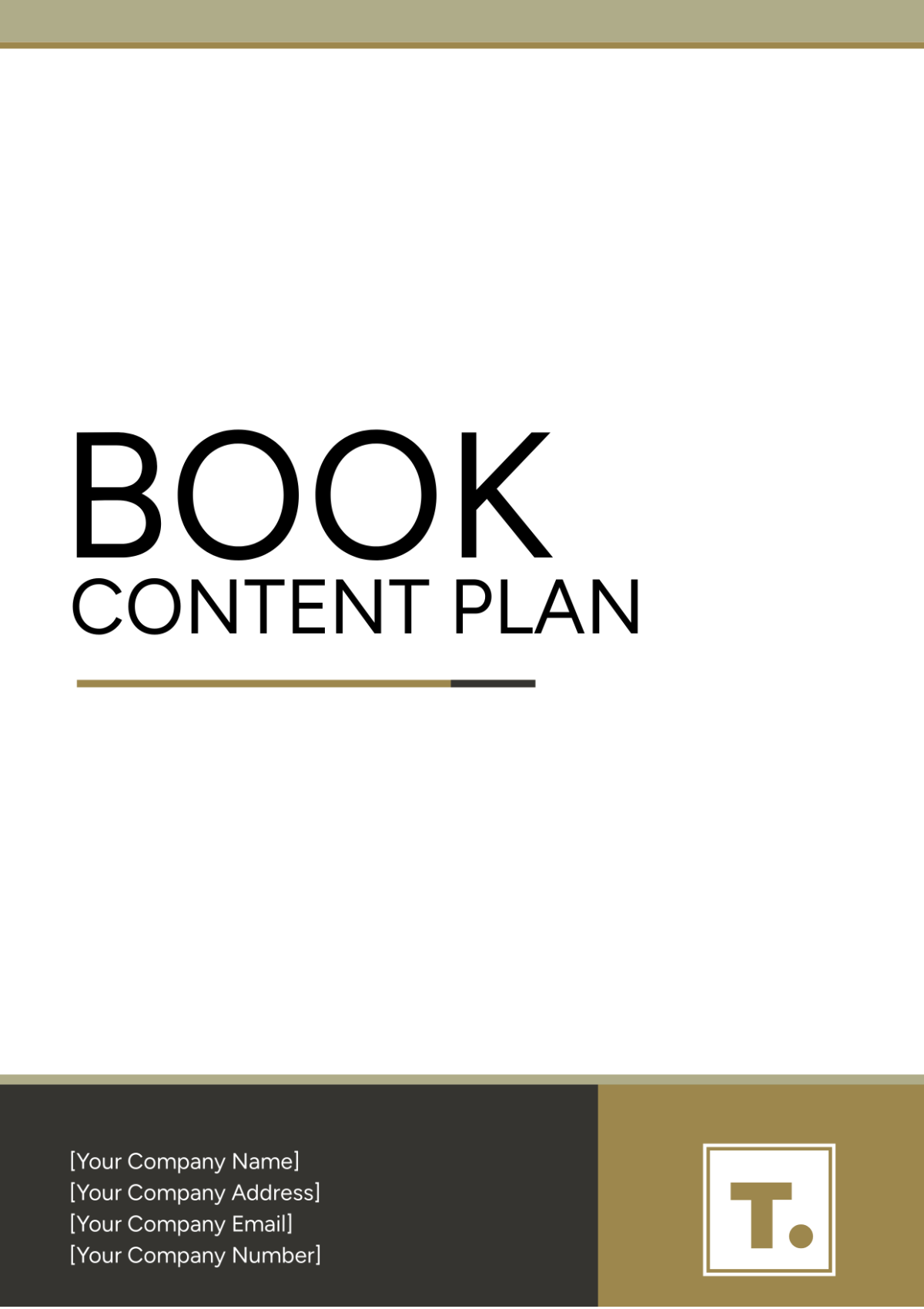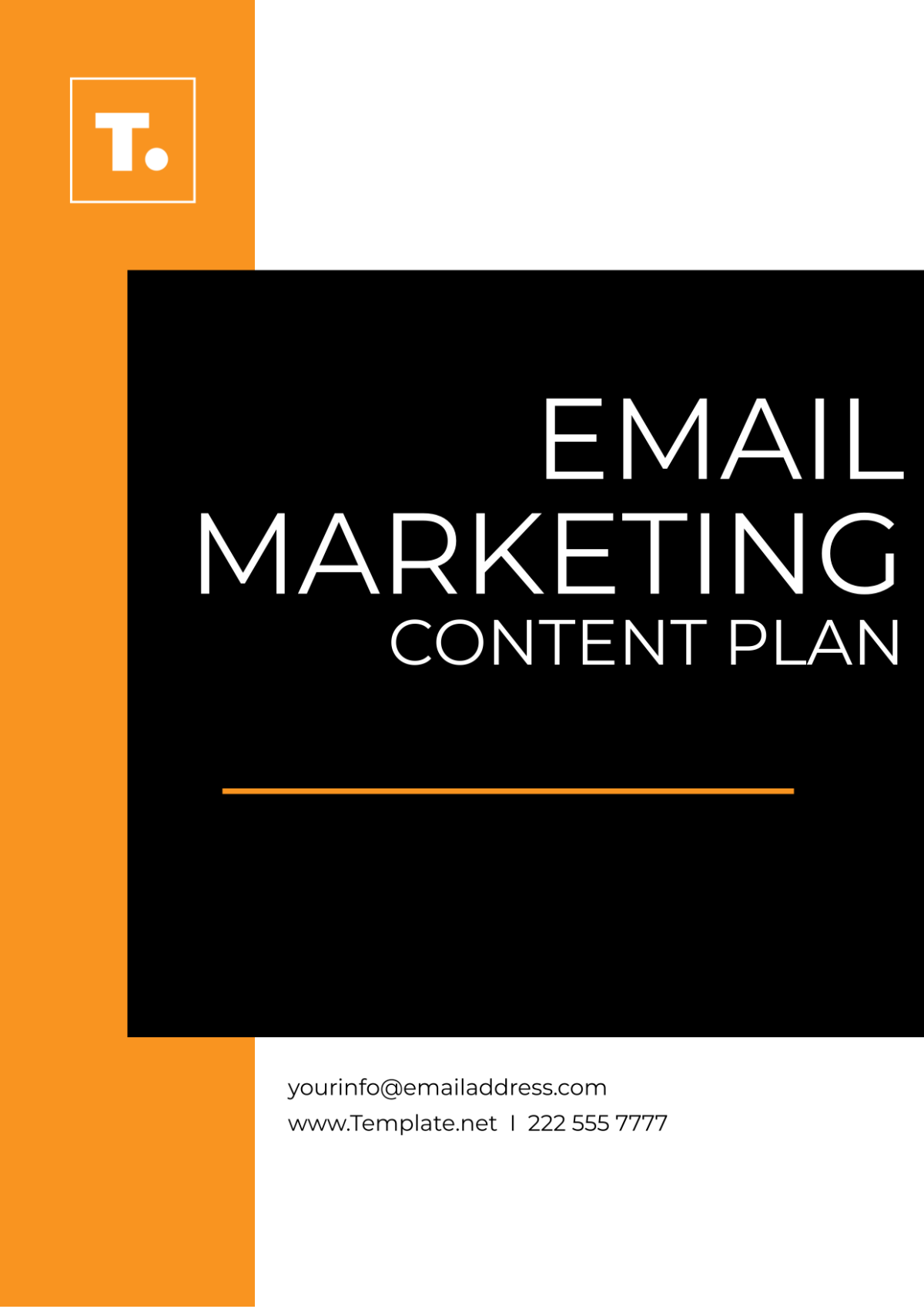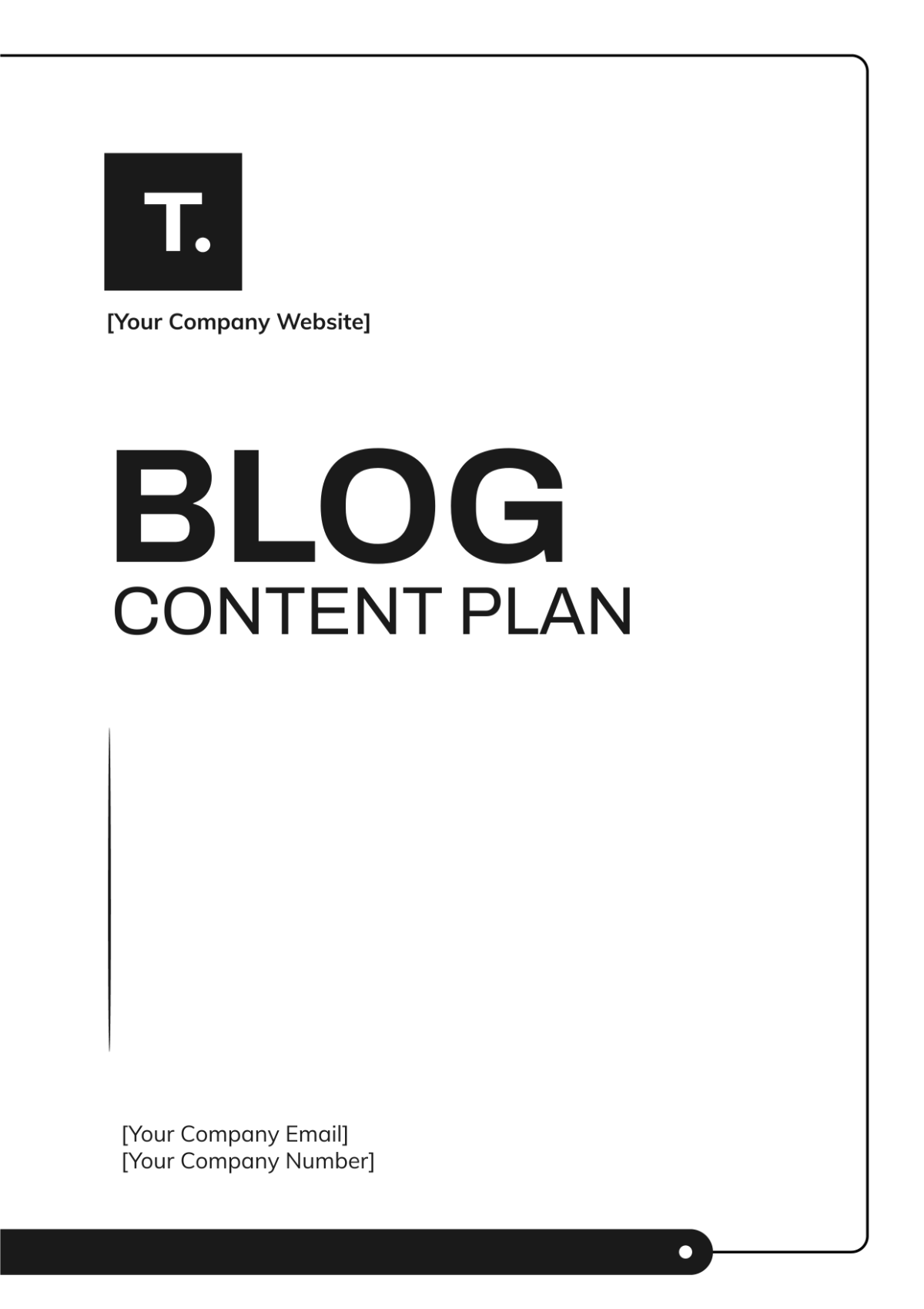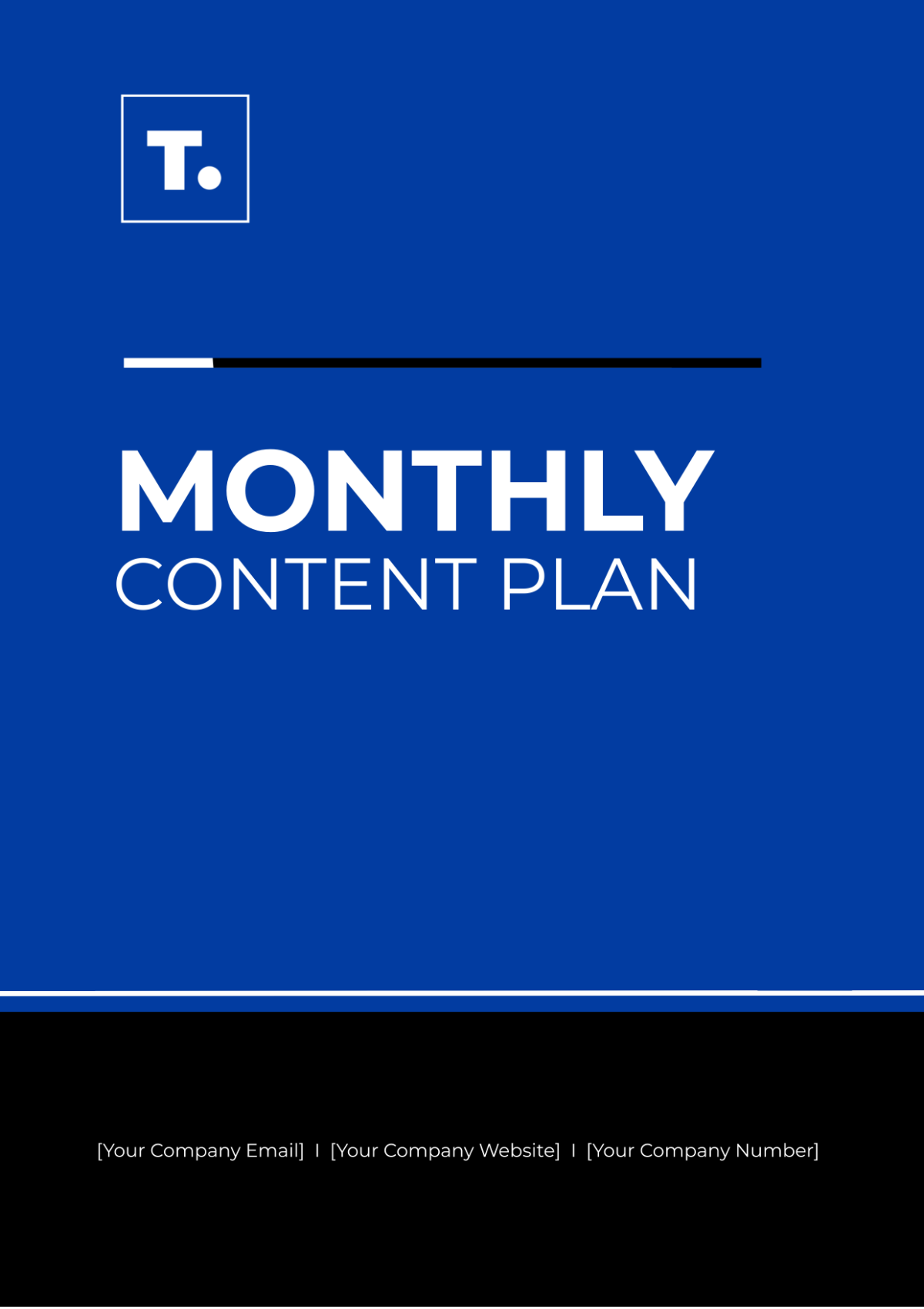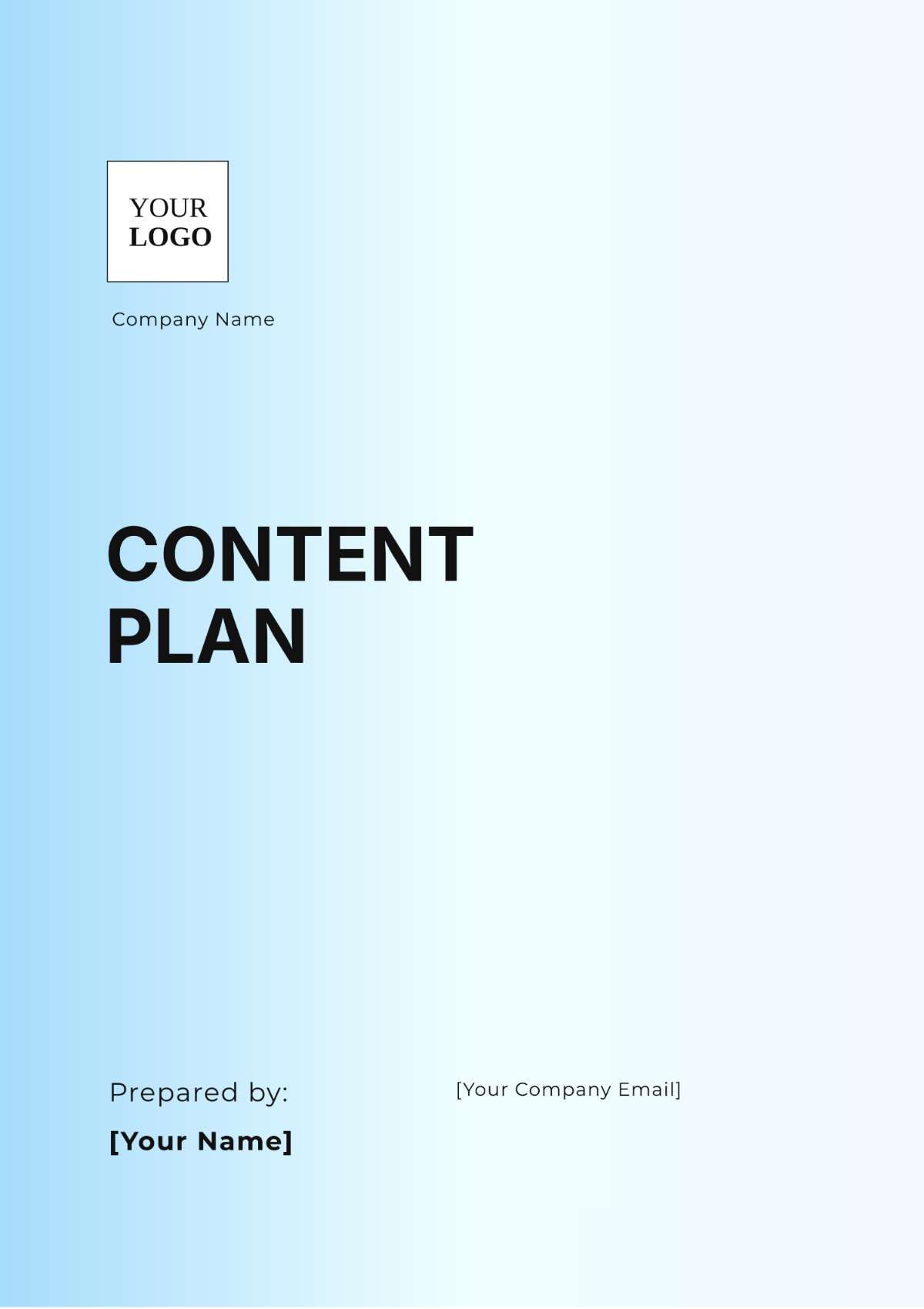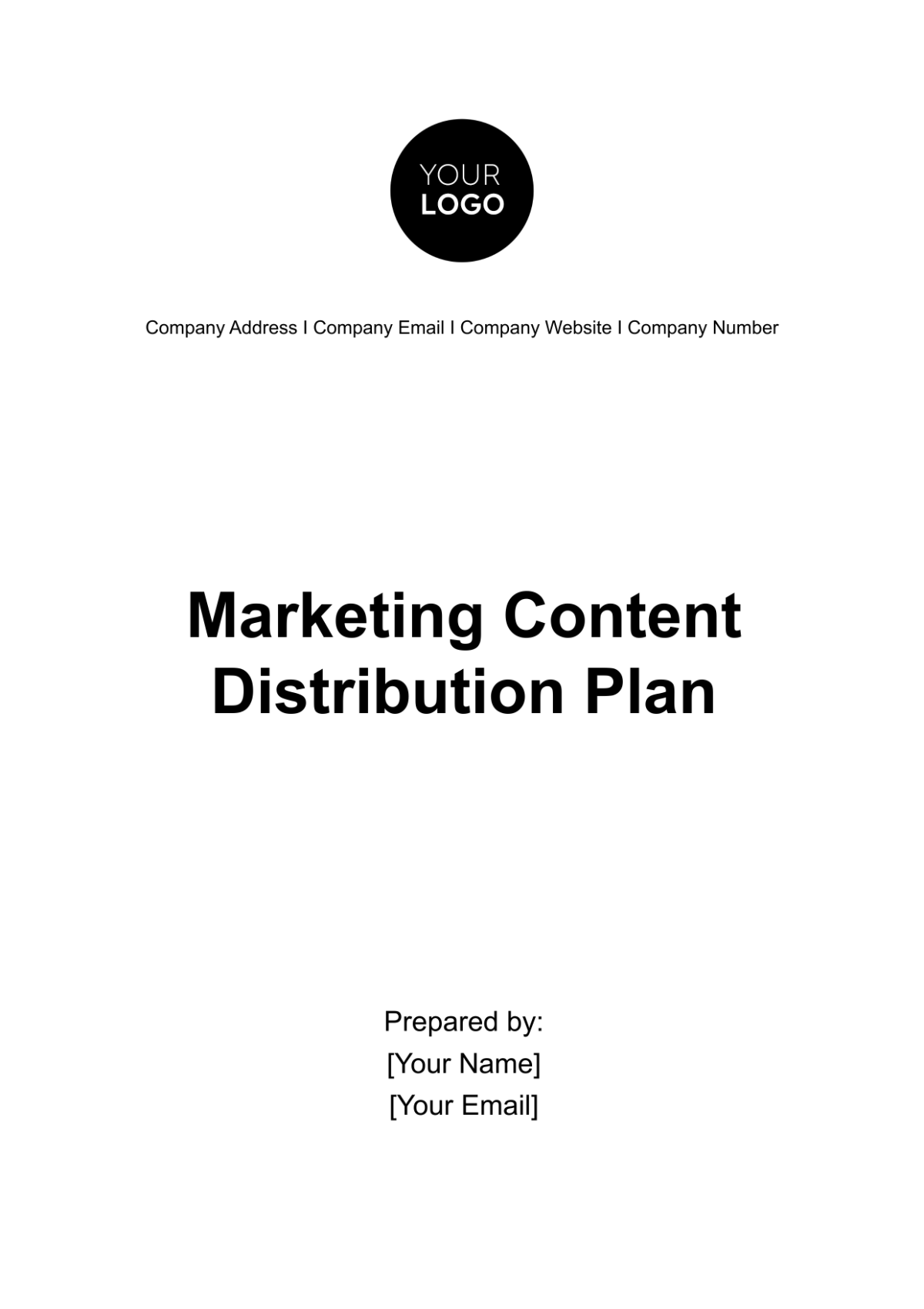Yearly Content Plan
I. Executive Summary
This Yearly Content Plan outlines the strategic direction for [YOUR COMPANY NAME]'s content marketing efforts. This plan aims to enhance brand awareness, engage our target audience, and drive business growth through consistent, high-quality content. Our strategy includes detailed content themes, distribution channels, a content calendar, performance metrics, and a budget allocation.
II. Content Goals and Objectives
The primary goals for our content strategy are:
Increase Brand Awareness: Elevate the presence of [YOUR COMPANY NAME] across various digital platforms.
Engage Target Audience: Produce engaging and relevant content to foster a loyal community.
Drive Traffic and Leads: Utilize content to drive website traffic and generate quality leads.
Enhance Customer Education: Provide valuable information to educate our customers about our products and services.
Improve SEO Rankings: Develop content that improves our search engine visibility and rankings.
III. Audience Analysis
Understanding our audience is crucial for creating relevant content. Our target audience includes:
Demographics: Professionals aged 25-45, predominantly in urban areas.
Interests: Technology, innovation, sustainability, and lifestyle improvement.
Challenges: Time management, staying updated with industry trends, and making informed decisions.
IV. Content Themes and Topics
Our content will revolve around the following themes:
Innovation in Technology: Latest trends, innovations, and breakthroughs in technology.
Sustainability Practices: Eco-friendly practices and sustainable solutions.
Lifestyle and Productivity: Tips and strategies for improving personal and professional life.
Product Education: In-depth information about our products and their benefits.
Theme | Q1 Topic | Q2 Topic | Q3 Topic | Q4 Topic |
|---|---|---|---|---|
Innovation in Technology | AI and Machine Learning Trends | The Future of Robotics | Quantum Computing | The Impact of 5G Technology |
Sustainability Practices | Green Energy Solutions | Sustainable Urban Development | Eco-Friendly Product Innovations | Recycling and Waste Management |
Lifestyle and Productivity | Time Management Techniques | Balancing Work and Life | Enhancing Personal Productivity | Health and Wellness Tips |
Product Education | Product A: Benefits and Uses | Product B: In-Depth Guide | Product C: Customer Testimonials | Product D: Frequently Asked Questions |
V. Content Types and Formats
To cater to diverse preferences, we will use a variety of content types and formats, including:
Blog Posts: In-depth articles and insights.
Videos: Engaging visual content for tutorials, product demos, and interviews.
Infographics: Visually appealing representations of data and trends.
E-books and Whitepapers: Comprehensive guides and reports.
Social Media Posts: Short, engaging updates and interactive content.
VI. Content Distribution Channels
Our content will be distributed through the following channels:
Website: The primary hub for all content.
Social Media: Platforms like Facebook, Twitter, LinkedIn, and Instagram.
Email Marketing: Monthly newsletters and promotional emails.
Partner Websites: Collaborations with industry-related websites.
Paid Advertising: Targeted ads to reach a broader audience.
VII. Content Calendar
The content calendar ensures timely and consistent content publication. Below is a monthly content calendar for January:
Monthly Content Calendar (January)
Date | Content Type | Title | Channel | Owner |
|---|---|---|---|---|
January 3 | Blog Post | AI and Machine Learning Trends | Website | Content Manager |
January 10 | Video | Product A: Benefits and Uses | YouTube | Video Team |
January 15 | Social Media Post | Time Management Techniques | Facebook, Twitter | Social Media Team |
January 20 | E-book | Comprehensive Guide to Green Energy | Website | Content Manager |
January 25 | Infographic | The Future of Robotics | Design Team | |
January 30 | Newsletter | January Content Recap and Insights | Marketing Team |
VIII. Performance Metrics and KPIs
To measure the success of our content strategy, we will track the following key performance indicators (KPIs):
Website Traffic: Number of visitors and page views.
Engagement Metrics: Likes, shares, comments, and time spent on content.
Lead Generation: Number of leads generated through content.
Conversion Rates: Percentage of leads converted to customers.
SEO Performance: Organic search rankings and keyword performance.
Regular analysis and reporting will be conducted to assess the effectiveness of the content strategy and make necessary adjustments.
